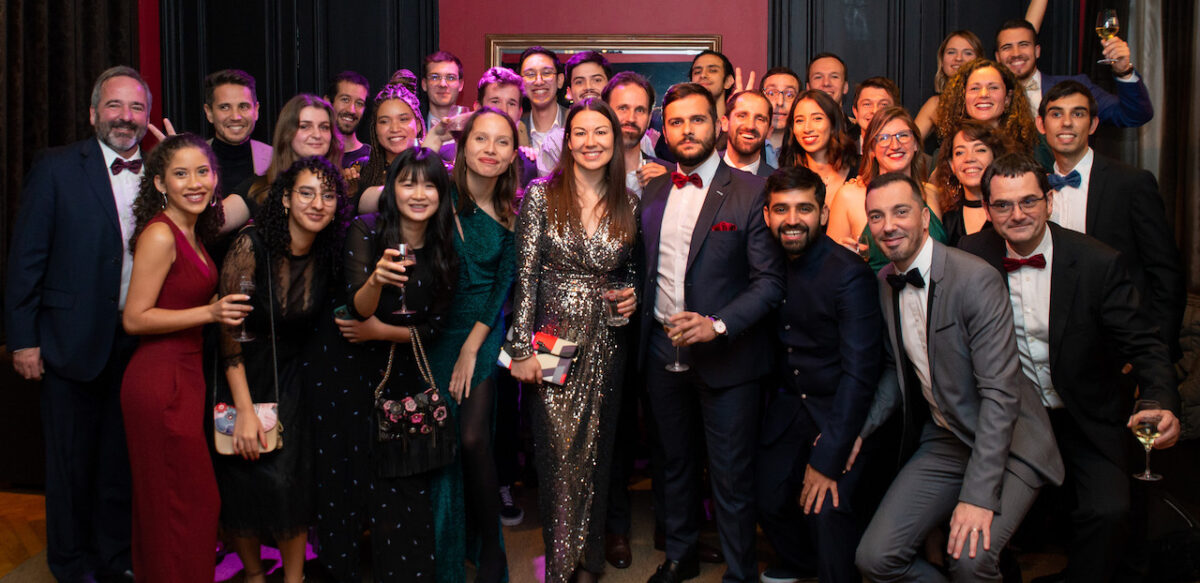Our mission
UMI was founded on the desire to bring together people passionate about innovation. With them, we want to have a positive impact on the world of tomorrow, and give everyone the opportunity to do the same.

We wanted to be sure of the direction we were heading before we committed to guiding our clients through this process. We decided to write a code of ethics we could all agree on and refer to when we start to lose the meaning of our work. This is our compass, which guides us in our mission towards innovation.

Defining our values, to not lose the North
We follow our morals to know what decision to make. However, as the UMI team has grown, we felt it was important to have a set of shared values to keep us on moving in the same direction and believing in what we do. Here are the values we all identify with and that shape our daily lives:
- Respect for others and the planet
- Sincerity, transparency and honesty
- Empathy, kindness and consideration
Innovation: Some basic rules
You have the same problem with the word ‘innovation’ as you do with the word ‘time’: if no one asks you for an explanation, you know what it means. But, when you are asked, it is complicated to define it. Fortunately, there is a universal definition: An innovation is an answer to a problem.
It may be simple, basic even, but if there is no problem, there is no innovation. That’s why an innovation is the result of a need expressed by people and its solution.
Here are a couple of examples that might help illustrate this:
If you invented green coloured yogurts, it’s not an innovation if no one expressed the need for such yogurts. If you invented eye-glasses that cannot break because you and others expressed that need, then you’ve got yourself an innovation.


Why should we innovate?
As we saw above, we innovate to solve problems. That’s why innovation is necessary: there will always be problems that need to be solved (unfortunately). But, should we find a solution to every problem?
We actually ask ourselves that. Since all solutions don’t have the same impact on our economy, society or environment, we need to innovate by sharing the same values and ethical code.
The perfect innovation: a fantasy?
Just like no one person can please everyone*, neither can innovation. The complexity and diversity of our world makes it difficult to adequately account for collateral damage.
Let’s take a look at the electrical car. If we put ourselves in the shoes of someone who wants to reduce their fossil fuel consumption, it is a great innovation. On the other hand, if we are keen on recycling, we are outraged by the pollution caused by used batteries.
We challenge you to talk about this issue at your next family gathering – you’ll see how strong opinions can be!
*of course this doesn’t apply to Keanu Reeves

And one more thing!
Our opinion depends on the time in which we live. Let’s remember that the creation of the first coal industries in the 19th century was widely acclaimed and considered a technical revolution. Today however, we look down on these polluting industries as some of the most dangerous mankind has ever created.
So the overall impact of an innovation can change from one period to another. We know that there will still be some uncertainty about the ultimate consequences of an innovation. But that does not prevent us from wanting to support innovative projects! We just need to be careful on those we guide.
Defining some rules for more transparency
Due to the difficulty of properly assessing an innovation and its impact on the world, we have decided to define our own rules to select innovative projects. These rules help us ensure that every innovative project we work on is in line with our values. Of course, our expertise can be challenged on any project, because we know our limits on some topics.
The projects we want to guide are those which:
- have an even distribution between advantages and disadvantages with respect to the following rules
- have a positive impact on things that can protect themselves: biodiversity, environment, etc.
- make valuable resources available to the greatest number of people: water, food, health, information
- improve life expectancy, health and well-being
- fight global warming
- clean up the air and soil
- improve the quality of working conditions
- create clean and affordable energy
- help produce and consume responsibly
The projects we would rather pass on are those which:
- go against our values
- engage in clear greenwashing
- push towards over-consumption
- have an offensive military purpose (weapons)
- invade privacy

What about our clients?
Most of the project owners we work with belong to the industrial sector. Some of these industries may have a bad reputation when it comes to ethical values. Do the rules mentioned above also apply to these project owners? We discussed this particular issue for a while at UMI, and we came to the conclusion that we did not want to exclude any project developer, for many reasons:
- The industrial sector has an important role to play in building the world of tomorrow, and we can guide it to what it needs at some level.
- The industrial sector has the financial resources and logistics to carry out innovative projects that will have a positive impact on the planet’s ecosystem.
- The industrial sector does not come down to one name, one logo, one executive committee, but is rather made up of several people with different and rich intents.
- The industrial sector, just as much as inventors or startups, suffers from a high failure rate when it comes to their innovation projects.
- The industrial sector, like any other economic activity, is trying to find a way to survive and will adapt to the problems we are facing now because it needs to.
Thank you
For reading to the end, and taking the time to understand our approach and values. We hope that you have learned more about UMI and our way of thinking, and we truly hope that you will want to work with us!

